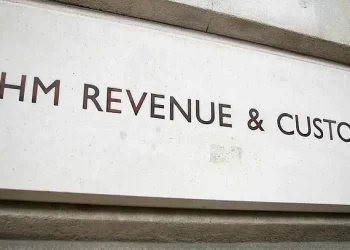Nearly 4 million UK households are set to receive an annual income boost of £725 by 2029/30 through the Universal Credit Bill, marking the largest permanent increase in out-of-work support since 1980.
This reform aims to enhance financial security and encourage workforce participation among disabled individuals.
Universal Credit Reforms: A New Era for UK Welfare
The Universal Credit Bill represents a significant shift in the UK’s welfare system, promising enhanced financial stability for millions of households.
By permanently raising the standard allowance above inflation, this reform provides a much-needed boost to disposable incomes amid ongoing economic challenges. The changes are designed to alleviate pressures on household budgets and stimulate consumer spending.
Empowering Disabled Individuals
A key aspect of the reform is the introduction of legal protections for disabled people, allowing them to explore work opportunities without fear of losing benefits.
The “Right to Try” initiative encourages greater workforce participation by offering a safety net for those with health conditions.
Additionally, 200,000 individuals with severe lifelong conditions will be exempt from reassessments, reducing stress and uncertainty.
Financial Implications for Households
- The standard allowance will rise above inflation, increasing by £725 in cash terms by 2029/30.
- Existing recipients will retain higher health top-up rates despite reductions for new claimants starting April 2026.
- A £3.8 billion investment will accelerate tailored employment support for disabled and sick people.
Historical Context and Future Prospects
This reform marks the largest real-terms increase in out-of-work support since 1980 when welfare benefits underwent significant restructuring. Previous reforms aimed at simplifying benefits faced criticism over conditionality and benefit levels.
The current Bill signals a shift towards increased support levels while addressing disincentives that may trap individuals in dependency cycles.
Industry Reactions and Challenges Ahead
The reforms have been welcomed by industry leaders and disability advocates for their fairness and focus on enabling work without fear.
However, concerns remain about whether reduced health top-ups adequately reflect additional costs faced by new claimants with disabilities. A ministerial review aims to ensure fairness in Personal Independence Payment assessments.
Additional Reading
To Summarize
The Universal Credit Bill represents a transformative step towards enhancing financial security and encouraging workforce participation among disabled individuals in the UK.
While challenges remain regarding implementation and adequacy of support, these reforms offer hope for improved living standards and reduced dependency cycles across millions of households.
Discover more of More of Todays Top Breaking Government News Stories!
Sources: UK Government, Institute for Fiscal Studies, and Department for Work and Pensions.
Prepared by Ivan Alexander Golden, Founder of THX News™, an independent news organization delivering timely insights from global official sources. Combines AI-analyzed research with human-edited accuracy and context.









